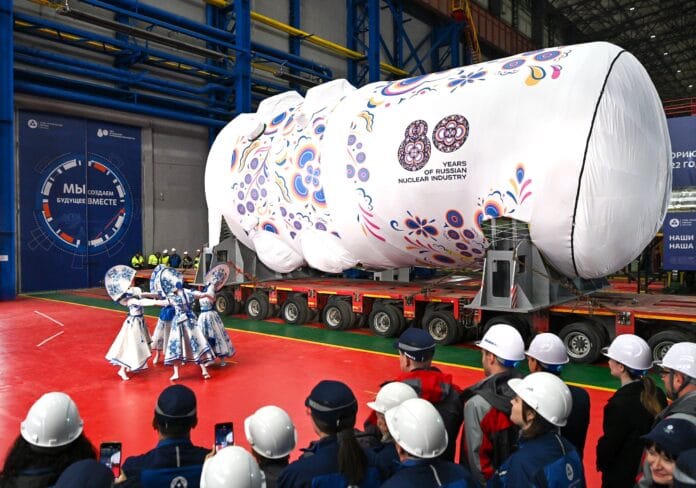The World Atomic Week International Forum (WAW-2025), commemorating the 80th anniversary of Russia’s nuclear industry, has convened in Moscow with a strong call for global cooperation in advancing clean energy.
The week-long event, hosted at the Exhibition of National Economy Achievements (VDNH), has drawn over 20,000 participants including government leaders, policymakers, industry experts, researchers, manufacturers, and media from across the globe. The forum concludes on September 28.
The opening ceremony was attended by high-profile figures such as Sergey Kirienko, First Deputy Head of Russia’s Presidential Executive Office; Alexander Novak, Deputy Prime Minister of Russia and Chairman of Rosatom’s Supervisory Board; Rafael Mariano Grossi, Director General of the International Atomic Energy Agency (IAEA); Sama Bilbao y León, Director General of the World Nuclear Association (WNA); and Alexey Likhachev, Director General of Rosatom.
Sergey Kirienko emphasized Russia’s commitment to long-term global partnerships, stating:
“Modern nuclear power plants have a lifespan of about 100 years. The agreements reached at World Atomic Week will shape the fate of our planet for at least the rest of this century.”
Rosatom chief Alexey Likhachev highlighted nuclear energy’s growing role in climate action:
“Our task is to step together into tomorrow, where there will be no alternative to nuclear energy as the foundation for green energy.”
Marking the occasion, Rosatom announced the simultaneous shipment of two advanced VVER-1200 reactor pressure vessels for Egypt’s El Dabaa nuclear power plant and Turkey’s Akkuyu plant.
Fusion Energy in Focus
A key highlight of the opening day was the roundtable on controlled thermonuclear fusion, where leading scientists and organizations explored progress in fusion research. Alan Becoulet, Deputy Director-General of the ITER project, reported that construction milestones are being met:
“ITER now involves 35 countries. We are close to completing the installation of the toroidal vessel and assembling the reactor. The pace is very encouraging.”
The session also underscored strengthening Russian-Chinese cooperation in fusion research. China, a major ITER participant, has already achieved the creation and sustained confinement of plasma—a significant breakthrough toward practical fusion energy.
The ITER project aims to make nuclear fusion scientifically feasible, offering a safe, clean, and virtually limitless source of power.

